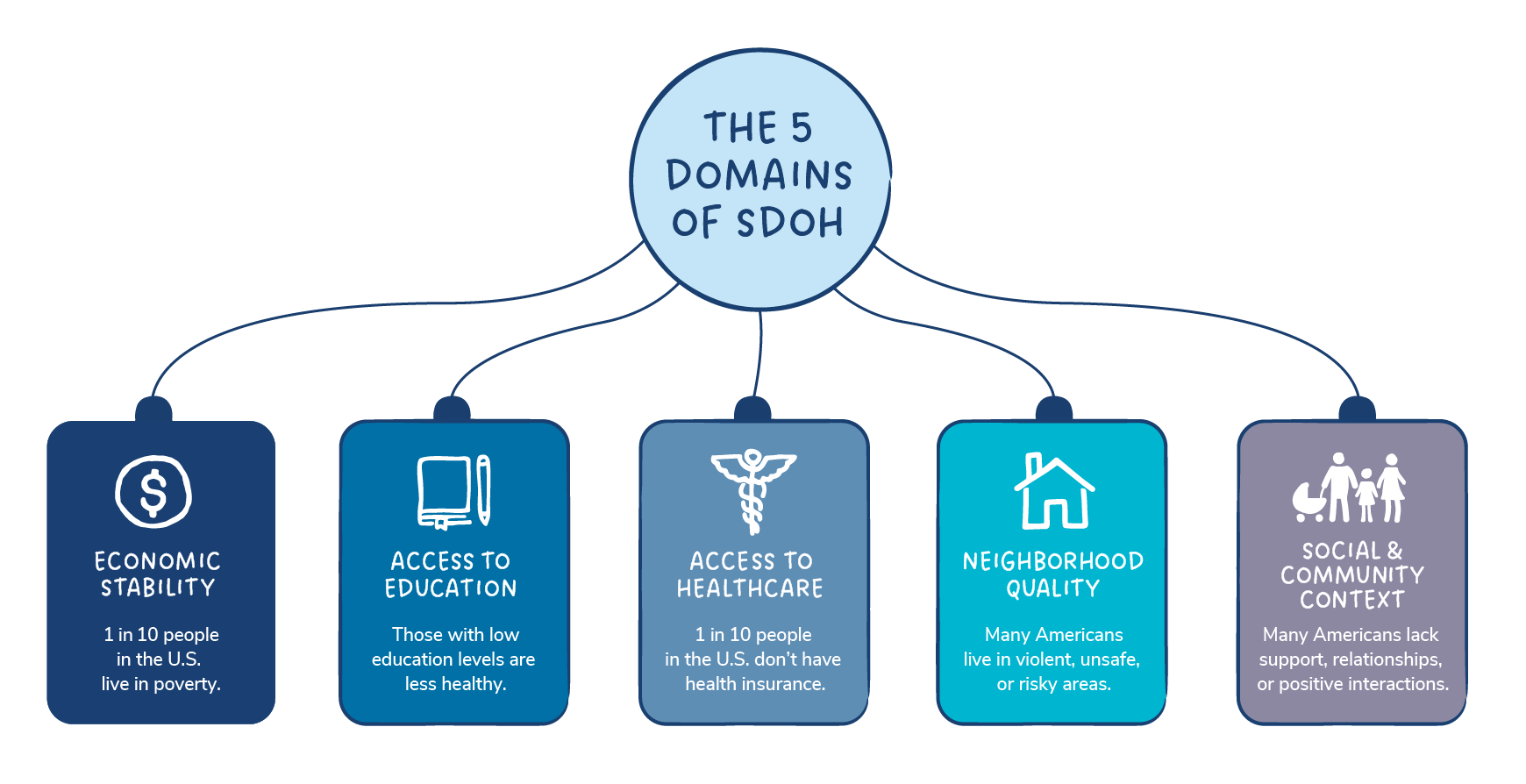Factoring in Social Determinants of Health (SDOH): A Value-Based Care Imperative
This article is one in a series that advocates the need to bring specialty care under value-based care payment models. Click here to read the previous article, The Risk/Return Ratio of Value-Based Care is High, But Progress is Slow.
Integrating social determinants of health (SDOH) into value-based care models is essential. Understanding the conditions in which people are born, live, learn, work, play, worship, and age—and factoring them into an overall plan for their better, more healthy futures—is something that must happen, and it needs to happen now.
Social determinants of health influence more than 80% of all outcomes. Understanding them, and acting on them, is critical to the success of value-based care as a concept. Aggregated information about patients—what kind of community they live in, how much access they have to education and healthcare, the stability of their finances, and other social context—can speak volumes to caregivers in a position to help them be healthy and well.
These social determinants of health are closely tied to the value-based care imperative. When VBC factors in the impact of SDOH, the benefits are huge:
- Holistic understanding. VBC is about treating the whole patient, not just the immediate condition. Addressing SDOH let providers better understand the context of their patients’ lives—and tailor treatment accordingly.
- Preventive/early intervention opportunity. The ability to identify patients at a higher risk of chronic conditions or adverse outcomes in the future via their SDOH can lead to longer, more productive lives.
- Increase in health equity. SDOH are responsible for health disparities among different population groups. By acknowledging them directly, it’s possible that inequality in healthcare access, quality, and outcomes can be reduced.
- Boost patient engagement. Once providers understand social challenges faced by patients, they’re able to create the tailored care plans that lead to increased adherence, and improved outcomes.
- Experience cost savings. By understanding and responding to specific SDOH, ER visits, hospitalizations, and complications happen less frequently, benefiting the individual patients involved, as well as minimizing the burden on the healthcare system as a whole.
- Improve community health. Collaboration with community organizations and other stakeholders to address SDOH contributes to healthier populations, and stronger neighborhoods.
- Get insights driven by data. Healthcare organizations stand to gain a more comprehensive, actionable understanding of their patient populations, and are able to increase their ability to make informed decisions to improve care delivery.
- Partner to grow influence. Understanding the implications of SDOH requires partnership between and among providers, community organizations, social services, and other stakeholders. A core concept of VBC is to encourage this holistic and coordinated approach to patient care.
Acknowledgment that socioeconomic status, education, housing, and access to nutritious food have a significant impact on a person’s well-being will go a long way in making healthcare in America better for everyone.
The integration of social determinants of health into the value-based care value proposition is key. As the U.S. healthcare system moves from paying for volume to paying for value, it’s more important than ever to factor in the non-medical factors that influence health.

This article is one in a series that advocates the need to bring specialty care under value-based care payment models. Click here to read the next article, VBC is Not a Do-It-Yourself Proposition.
References:
The ABCs of ACO, MSSP and More: A Value-Based Care Glossary
Social Determinants Of Health Challenges
How Are Payment Reforms Addressing Social Determinants of Health?
Integrating The Social Determinants of Health Into Value-based Care
Introduction to Value & Social Determinants of Health (SDOH)
Social Determinants of Health at CDC
 ASK ENLACE
ASK ENLACE